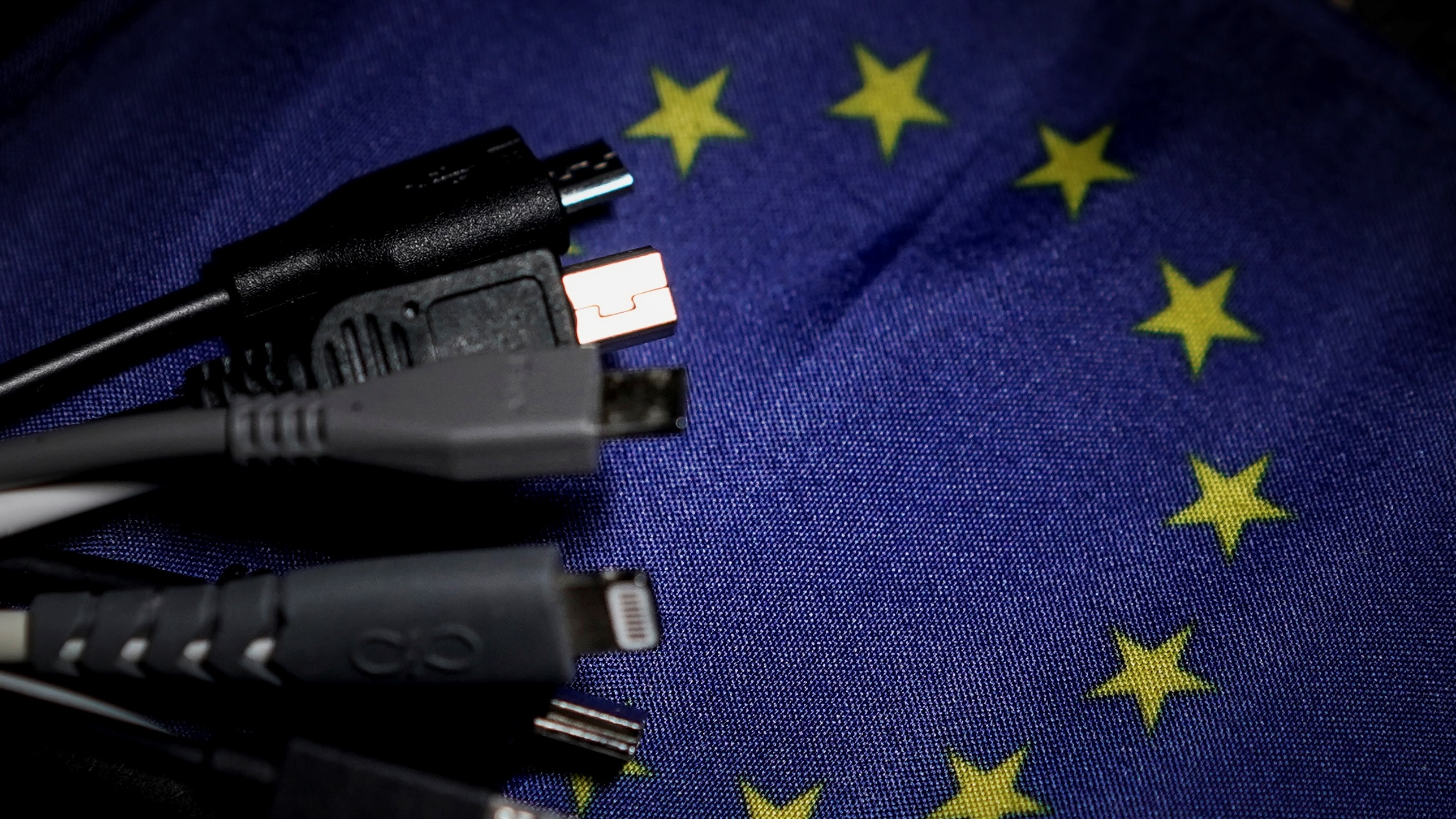Ultrafast aluminium battery can charge phone in a minute
Scientists invent a safer and more environmentally friendly battery that can bend in your hand

A free daily email with the biggest news stories of the day – and the best features from TheWeek.com
You are now subscribed
Your newsletter sign-up was successful
Scientists in California have invented a bendable aluminium-ion battery that can charge a smartphone in 60 seconds.
Researchers at Stanford University say the "ultrafast rechargeable aluminium-ion battery" provides a more environmentally friendly alternative to disposable alkaline batteries and is a safer alternative to lithium-ion batteries, which "occasionally burst into flames".
The new battery will not catch fire, even if you drill through it, they say. It can also deliver two volts of electricity, higher than anyone has achieved with aluminium and more than the 1.5 volt AA and AAA batteries, which are sold in their hundreds of millions each year in the UK alone.
The Week
Escape your echo chamber. Get the facts behind the news, plus analysis from multiple perspectives.

Sign up for The Week's Free Newsletters
From our morning news briefing to a weekly Good News Newsletter, get the best of The Week delivered directly to your inbox.
From our morning news briefing to a weekly Good News Newsletter, get the best of The Week delivered directly to your inbox.
"Researchers have been experimenting with aluminium batteries for decades, but have never found the perfect combination of materials to produce enough voltage via a cell that lasts for thousands of cycles of charging and discharging," says James Temperton at Wired.
But this "potentially-revolutionary" battery could soon be powering popular gadgets, from smartphones to remote controls and toys, he says.
The researchers described their findings, published in the journal Nature, as a "major breakthrough", although noted that the battery can currently only produce half the voltage needed to power a smartphone.
"Otherwise, our battery has everything else you'd dream that a battery should have: inexpensive electrodes, good safety, high-speed charging, flexibility and long cycle life. I see this as a new battery in its early days. It's quite exciting," said Hongjie Dai, a professor of chemistry at Stanford.
A free daily email with the biggest news stories of the day – and the best features from TheWeek.com
He believes that improvements to the cathode material could increase the voltage.
The aluminium battery could also be used to store renewable energy on the electrical grid, as it has a long cycle-life that can rapidly store and release energy, said Dai. "Our latest unpublished data suggest that an aluminium battery can be recharged tens of thousands of times."
-
 6 fantastic homes with fun rooms for kids
6 fantastic homes with fun rooms for kidsFeature Featuring an organic modern house in Austin and historic Chicago abode
-
 Democrats seek calm and counterprogramming ahead of SOTU
Democrats seek calm and counterprogramming ahead of SOTUIN THE SPOTLIGHT How does the party out of power plan to mark the president’s first State of the Union speech of his second term? It’s still figuring that out.
-
 Climate change is creating more dangerous avalanches
Climate change is creating more dangerous avalanchesThe Explainer Several major ones have recently occurred
-
 Will AI kill the smartphone?
Will AI kill the smartphone?In The Spotlight OpenAI and Meta want to unseat the ‘Lennon and McCartney’ of the gadget era
-
 TikTok alternatives surge in popularity as app ban looms
TikTok alternatives surge in popularity as app ban loomsThe Explainer TikTok might be prohibited from app stores in the United States
-
 Justice Department bites Apple with iPhone suit
Justice Department bites Apple with iPhone suitSpeed Read The lawsuit alleges that the tech company monopolized the smartphone industry
-
 Phubbing: a marriage-wrecking habit?
Phubbing: a marriage-wrecking habit?Talking Point New study says couples are avoiding talking to each other by looking at their phones - but was it ever thus?
-
 The arguments for and against universal chargers
The arguments for and against universal chargersPros and Cons European Commission pushing to establish USB-C as standard for all phones
-
 How cybercriminals are hacking into the heart of the US economy
How cybercriminals are hacking into the heart of the US economySpeed Read Ransomware attacks have become a global epidemic, with more than $18.6bn paid in ransoms in 2020
-
 Language-learning apps speak the right lingo for UK subscribers
Language-learning apps speak the right lingo for UK subscribersSpeed Read Locked-down Brits turn to online lessons as a new hobby and way to upskill
-
 Brexit-hobbled Britain ‘still tech powerhouse of Europe’
Brexit-hobbled Britain ‘still tech powerhouse of Europe’Speed Read New research shows that UK start-ups have won more funding than France and Germany combined over past year